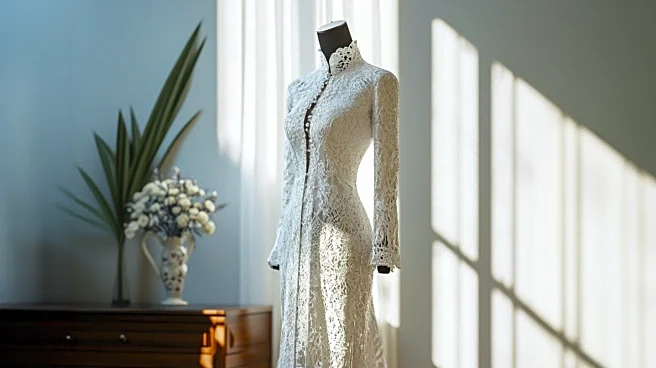What's Happening?
A recent analysis highlights the growing dissatisfaction among women in heterosexual marriages, questioning the traditional dynamics that often leave women feeling unfulfilled. The article discusses how societal conditioning leads women to prioritize external approval and caretaking roles, resulting in dependency rather than genuine partnership. It points out that while married men tend to experience better health outcomes and lower depression rates, married women report higher stress and dissatisfaction. This paradox suggests that traditional marriage structures may not serve women's needs effectively, prompting many to reconsider their roles and expectations within relationships.
Why It's Important?
The exploration of challenges faced by women in straight marriages is crucial in understanding broader societal shifts regarding gender roles and relationship dynamics. As women increasingly gain independence and the ability to thrive without traditional partnerships, the decision to marry becomes more of a choice than a necessity. This shift could lead to changes in how relationships are structured and perceived, potentially influencing public policy and social norms. The discussion also highlights the need for more equitable and fulfilling partnerships, encouraging both men and women to reevaluate their roles and contributions within relationships.
Beyond the Headlines
The analysis of straight marriage dynamics raises important questions about the cultural and psychological factors influencing relationship satisfaction. It challenges the notion of traditional gender roles and encourages a reevaluation of what constitutes a healthy and supportive partnership. This discussion may lead to increased advocacy for relationship education and support, aiming to foster more balanced and fulfilling connections. Additionally, it underscores the importance of self-awareness and personal growth in achieving genuine intimacy and partnership.










